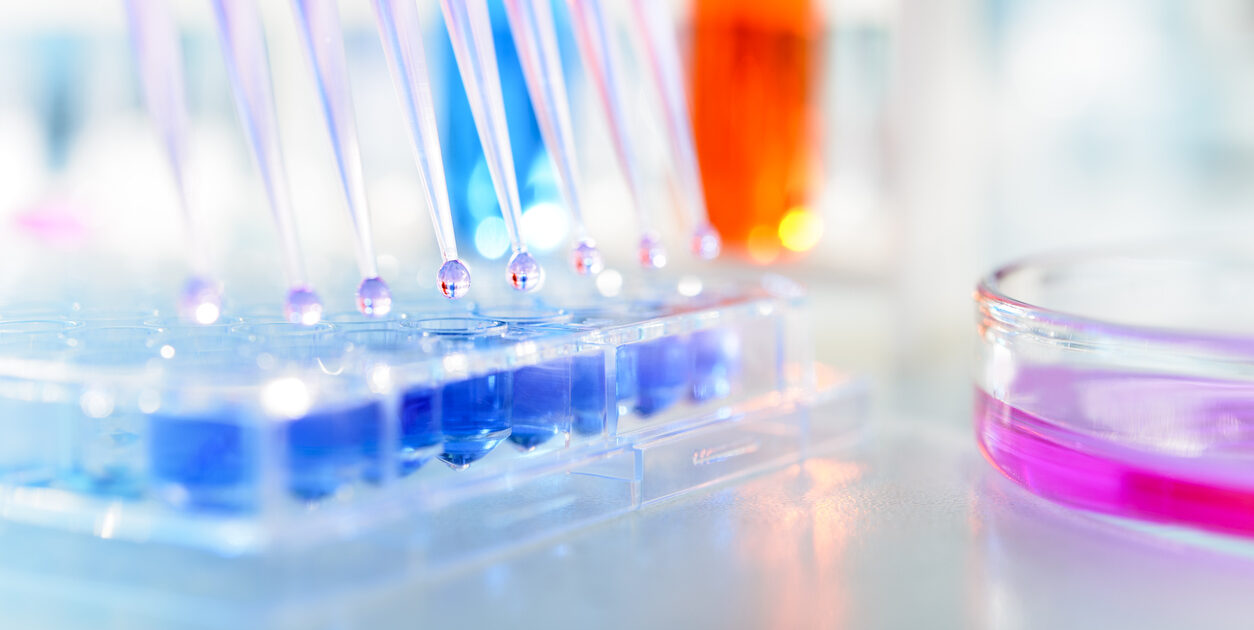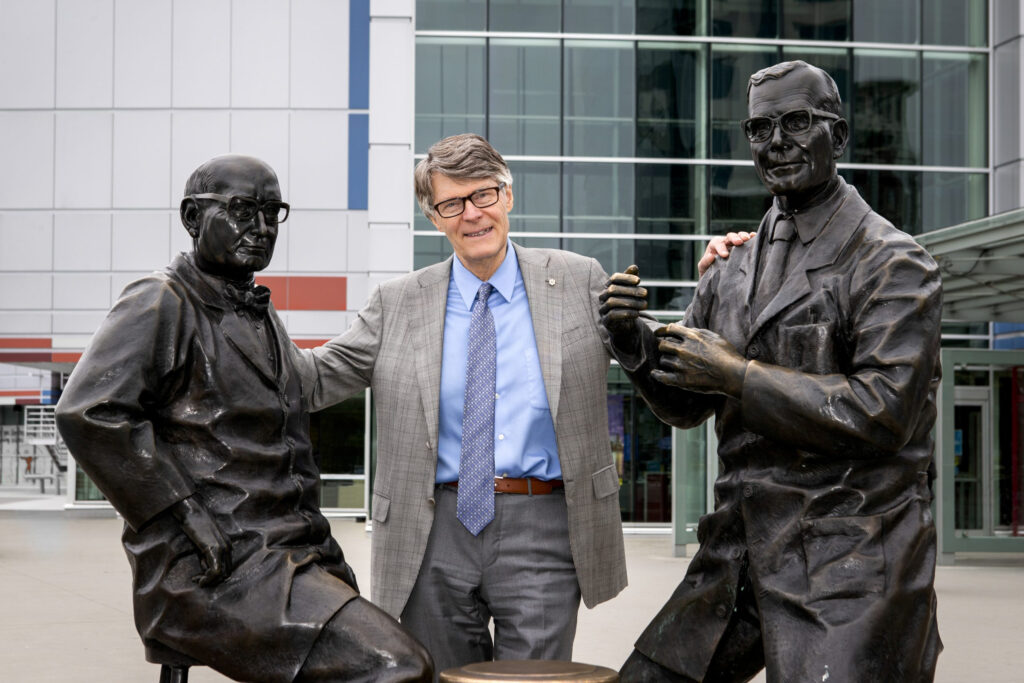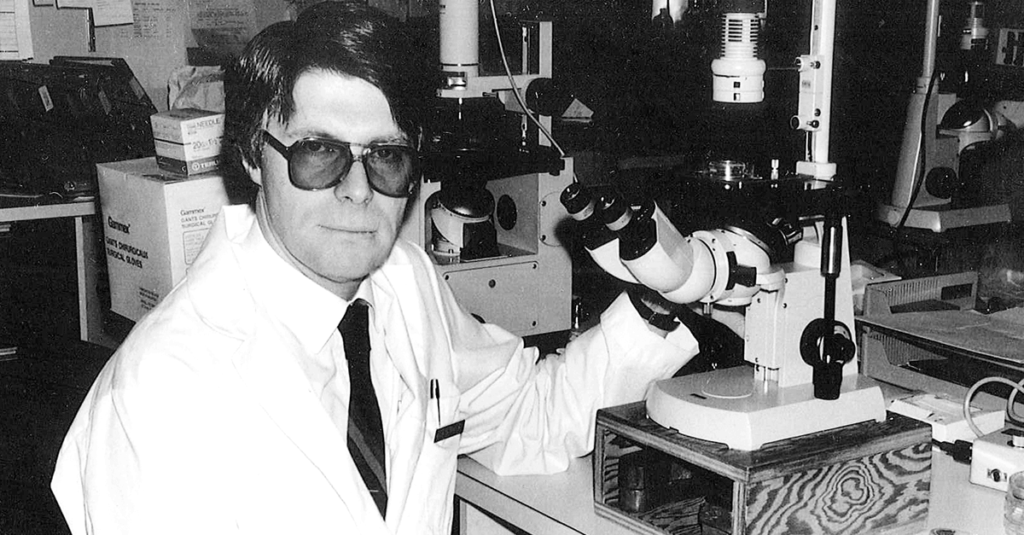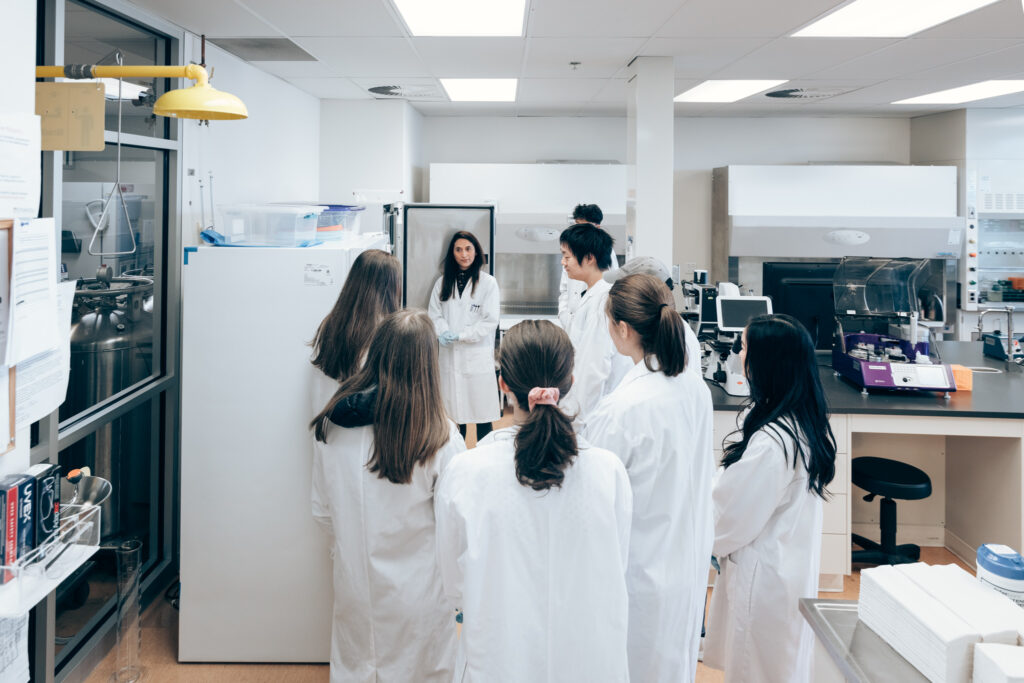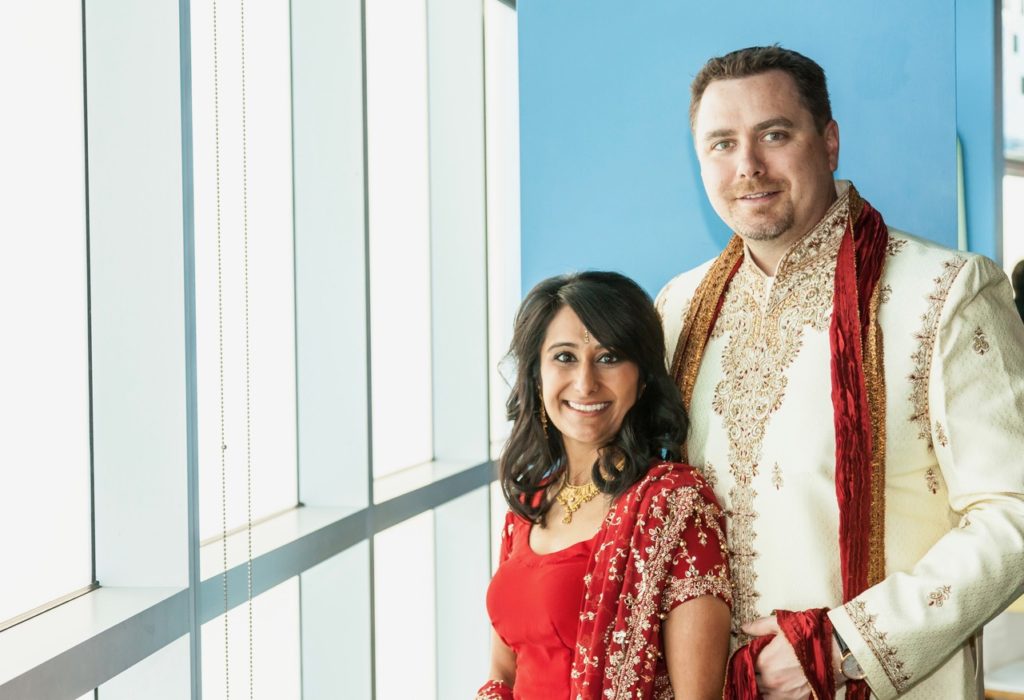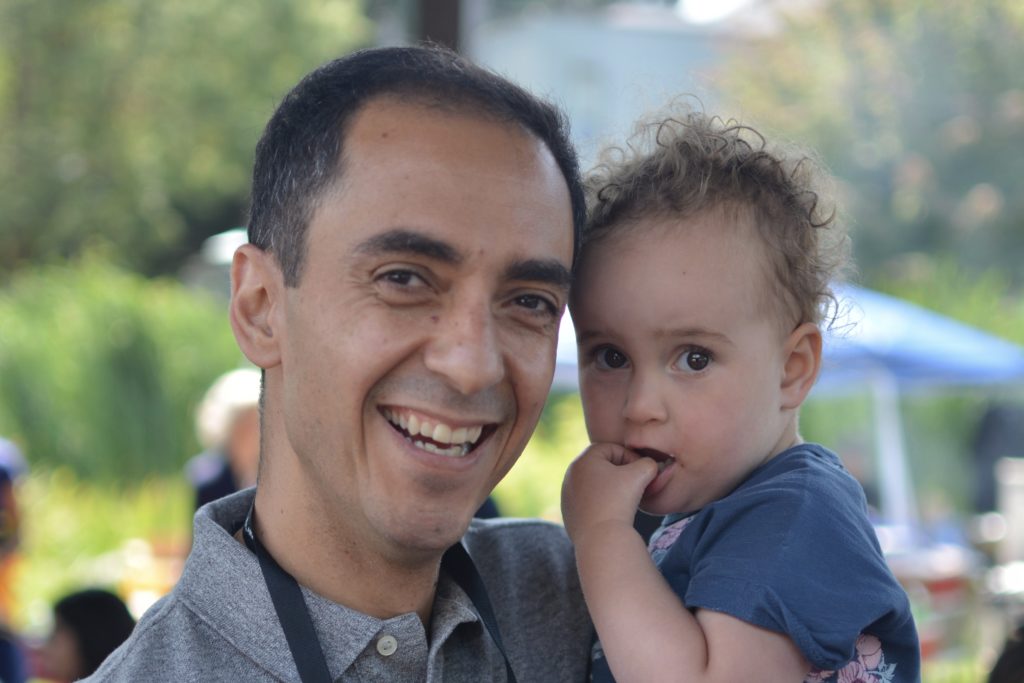It’s also why Allen donated bronze statues by artist Ruth Abernethy to Science World. They feature Canadian doctors James Till and Ernest McCulloch—Allen’s early career mentors and the discoverers of stem cells.
The statues sit outside our geodesic dome, which Allen calls “a beacon that draws kids in and encourages them to explore science.”
For Allen, the statues represent both a lifesaving breakthrough in healthcare and the urgent need to invest in scientific innovation. Till and McCulloch couldn’t have done what they did without public backing.
"To really play a fundamental role in improving healthcare with a supply chain of creative and reliable new products,” Allen says, “you need to support science.”
Apples to Stem Cells
“The smells of a lab are so stimulating when you walk in. It makes you feel like you have the opportunity to change the world by discovering something really important,” Allen says.
The first lab he ever entered was his father’s, Charles Eaves, who did in fact change the world.
As a horticultural scientist studying the preservation of apples in Nova Scotia, Charles pioneered research on controlled atmospheric storage. Lowering the oxygen in a sealed storage facility slows the apples' metabolism so they keep months longer. Over 70% of the world's apple crop is now stored this way.
Inspired by both his father’s work and their conversations over dinner about global hunger and food insecurity, Allen thought he’d become an oceanographer, believing that, with sustainable practice, oceans could provide the protein the world needs.
But the slow pace of the research frustrated him. Then, unexpectedly, tragedy struck when the young mother of close friends suddenly developed breast cancer and died shortly thereafter.
Allen reflects. “I decided to switch to an MD, followed by a PhD in cancer research, and to spend my days trying to cure cancer.”
A Marathon
In this goal, he found a lifelong partner in fellow scientist Connie. As trainees at the Ontario Cancer Institute, they studied under Till and McCulloch, the fathers of stem cell biology, before moving to Vancouver.
In 1981, they co-founded Terry Fox Laboratory, now an internationally recognized leader in cancer research.
